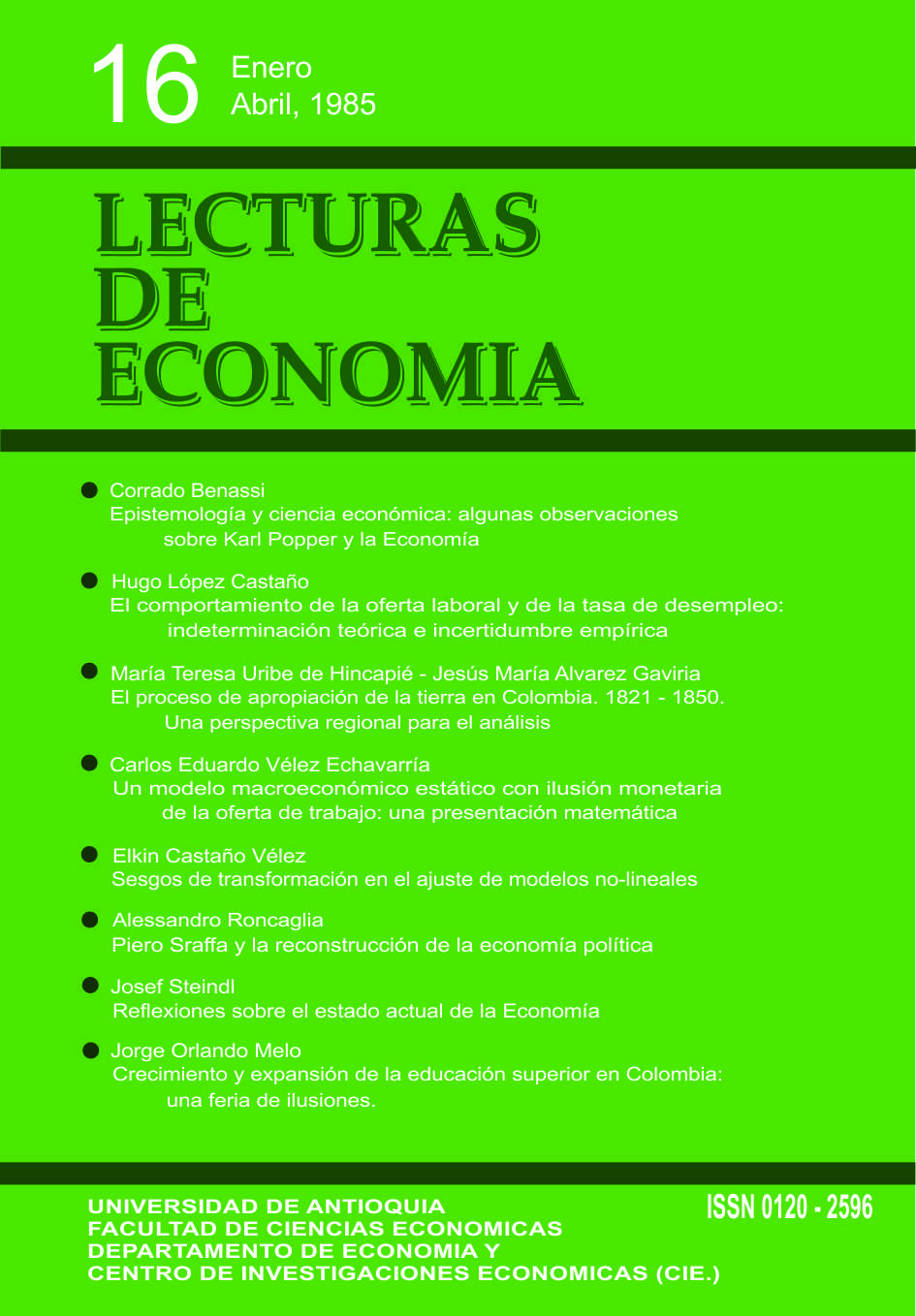Sesgos de transformación en el ajuste de modelos no-lineales
DOI:
https://doi.org/10.17533/udea.le.n16a10377Abstract
Resumen
Al tratar de simplificar los problemas de estimación en relaciones no lineales, el economista recurre con frecuencia a utilizar transformaciones sobre las variables originales de forma tal que el modelo con las nuevas variables sea lineal. Sin embargo, estas transformaciones producen sesgos importantes al obtener, mediante proceso de re transformación, el modelo original ajustado. Este artículo muestra cómo corregir en forma fácil gran parte de estos sesgos en algunos modelos frecuentemente utilizados. En la práctica estas correcciones actúan sobre los sesgos proporcionando modelos más adecuadamente ajustados.
Abstract
When the economist tries to simplify non-linear relations frequently uses transformations of original variables in order to linearize the model. Nevertheless, the filled original model obtained by retransformation contains significant biases. This paper shows how to correct those biases in some models frequently used: The corrective actuates over the biases in order to improve the fitness of the
modelo.
Palabras claves: Modelos no-lineales.
Downloads
Downloads
Published
How to Cite
Issue
Section
License
This page, by Universidad de Antioquia, is licensed under a Creative Commons Attribution License.
Authors who publish with this journal agree to retain copyright and grant the journal right of first publication, with the article licensed under a Creative Commons Attribution-NonCommercial-ShareAlike License allowing others to share it as long as they acknowledge its authorship and original publication in this journal.
Authors can enter into separate, additional contractual arrangements for the non-exclusive distribution of the journal's published version of the work (e.g., post it to an institutional repository or publish it in a book), provided that these arrangements be not for profit and the journal be acknowledged as the original source of publication.
Authors are permitted and encouraged to post their papers online (e.g., in institutional repositories or on their websites), as it can lead to valuable exchanges as well as greater citation of the published work.







